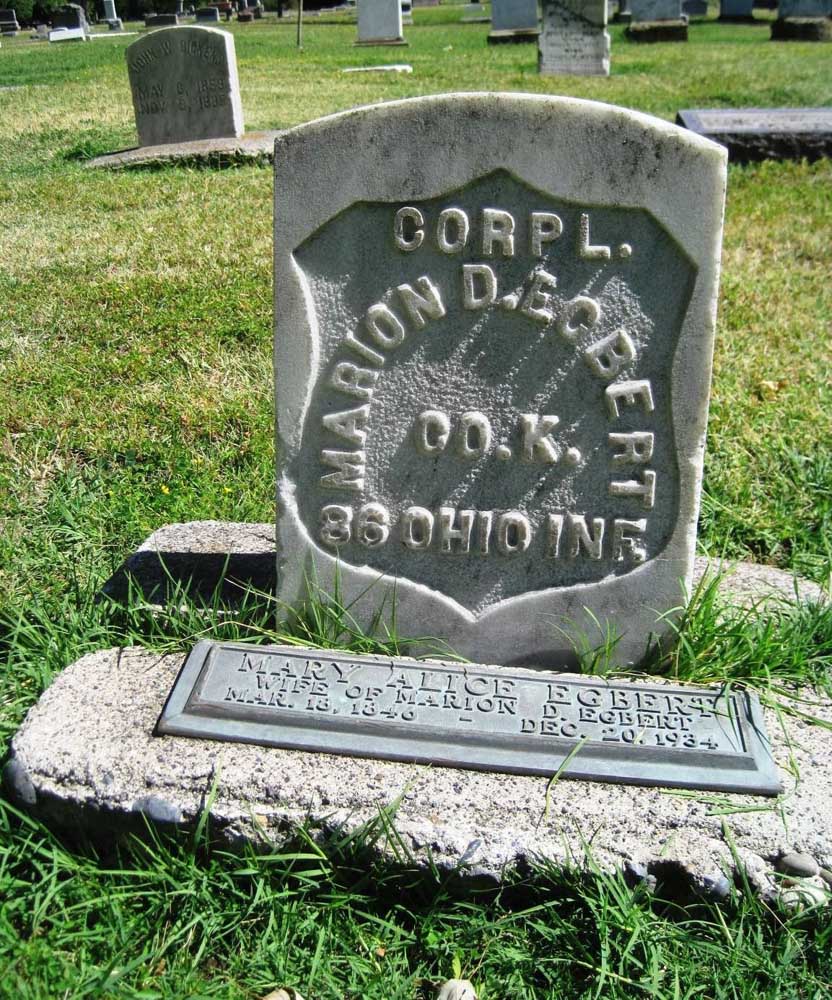Saints or Sinners? Characters of Pacific County: The sheriff who sparked a Pacific County killing
Published 8:30 am Thursday, September 26, 2024

- Marion D. Egbert’s grave marker notes that he served in the 86th Ohio Volunteer Infantry and the 146th Ohio Volunteer Infantry during the Civil War. He is buried in Walla Walla.
Marion D. Egbert 1844 — 1916
Marion Dallas Egbert was a “law and order” man. Information about him, except for one or two infamous stories, is reminiscent of the old “Dragnet” television series in which protagonist Joe Friday famously insisted each week, “just the facts, ma’am.” The facts about Marion Egbert are as follows:
- Born in 1844 in Lebanon, Ohio.
- Married Mary Alice Edwards in April 1869, in Clermont, Ohio Marion and Mary Alice were the parents of at least two sons and two daughters.
- Egbert was a Republican.
- During the Civil War he served with the 86th Ohio Volunteers and later re-enlisted with the 146th New York Volunteers (known as “Garrod’s Tigers”) who were considered one of the first units to reach the summit of Little Round Top at Gettysburg.
- He studied law in his hometown, practiced there and in Cincinnati before coming west to Walla Walla, Washington Territory in 1883.
- Established and managed the Walla Walla Journal with a partner.
- In 1890 he moved to South Bend and entered the business of law and real estate.
- Elected mayor of South Bend for three consecutive terms.
- In 1890 he moved to South Bend and entered the business of law and real estate.
- He was elected mayor of the town three consecutive term.
- Known as “Judge Egbert,” he is said to have been the “commander-in-chief” of the South Benders who kidnapped the Oysterville Courthouse in 1893.
- Served as County Prosecutor. Was a police judge and Justice of the Peace.
- In the 1910s was Deputy Collector of Customs at South Bend.
The above list of facts about Marion D. Egbert tell us a great deal about his law-and-order occupations and interests but, perhaps, the following excerpt from an article by historian Ruth Dixon gives a better sense of his character and personality.
Previous to the trouble which ended the career of Lum You (rhymes with “hum – how’), he had a grievance against another Chinaman. He complained to South Bend police chief Marion Egbert, who told him, rather impatiently, “Don’t come to me with your Chinaman troubles.” When Lum asked his advice, then, on what to do to protect himself, Egbert told him: “I don’t care. Chop off his head if you want to.” Well, he wanted to, and Ging had the scar to prove it. This incident amused the white people, and put an abrupt end to Lum’s Chinaman trouble. Later, W.B. Clark and a number of other character witnesses were to testify that Lum You was peaceable unless pushed beyond endurance.
On Aug. 6, 1901, Oscar Bloom, a large man, bumped into the smaller fellow when they met on the street; later he tipped over his chair and knocked the cards from his hand at a game. According to witnesses, on the night of the tragedy, Bloom had grabbed the Chinaman about the neck with one large hand while removing his valuables, including $40.75 in gold and silver coins, from his pockets with the other. He also made threats against Lum You’s life. This was not the first time Bloom had become abusive, but Lum knew he must not complain to Egbert again.
Lum You readily admitted going to his own room, putting one bullet in his gun, and shooting at Bloom from a distance of 30 feet. There were many who heard the shot, but no one went to Bloom’s aid. When someone did investigate his non-appearance next day, word of the shooting was sent to South Bend. Police Chief Egbert engaged the steamer FLORA BROWN and, with Dr. Gruwell and County Attorney Welsh, made a fast trip to Bay Center, arriving 23 hours after the shooting. L.L. Bush, a Notary Public, and other witnesses, were called to the bedside of Bloom, who made an affidavit…
Ultimately, Lum You, was convicted and hanged for killing Oscar Bloom — the only legal hanging ever to take place in Pacific County. There were many Pacific County citizens who believed that Marion Egbert’s no-nonsense, insensitive reaction to Lum’s earlier request for help should have been given more credence during the trial, arguing that Egbert’s unsympathetic response had been misunderstood by the foreign-speaking assailant. As might be expected, there is no record of Marion Egbert’s views on the subject.









